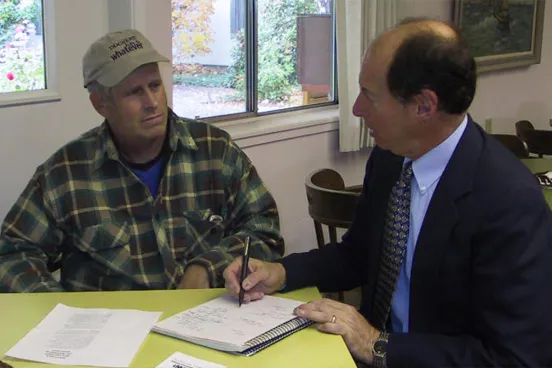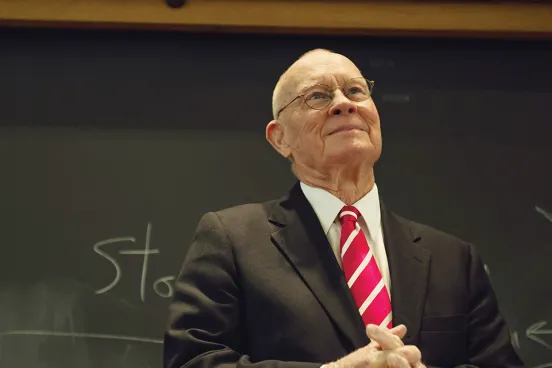
George Jenkins, ’66, vividly recalls a Life magazine article about the Ohio River Valley that was published when he was a young man. The article described central Appalachia, where he was born and raised, as an area dominated by steel mills and coal mines, where the only way for young people to leave the valley was through athletics.
“It was meant to be a positive article showing how athletes were able to obtain scholarships and find success outside of the Ohio Valley, but the people of the region were very offended by the article and the pictures of the men coming home from work covered with dust and dirt,” says Jenkins. “In fact, they were so incensed that they gathered in Martins Ferry, one of the small towns in the area, and they built a bonfire out of the magazine.”
Jenkins, himself a high school football and basketball star who left the area for his education, bore witness to the “anger, frustration, and hopelessness” felt by the region’s residents.
Many of the barriers to upward mobility that existed during his youth in Appalachia remain or have even been exacerbated in the intervening years, according to Jenkins.
“It’s a very different story today from what it was back when I was growing up. People had good jobs and it was a relatively prosperous community, by working-class standards. It was a wonderful place to be young because there were a lot of wide open spaces and no one stayed in the house,” says Jenkins. “Now, all the steel mills and most of the mines are gone. The unemployment in my home county is around 20 percent, and the whole community has changed.”
Jenkins received several athletic scholarship offers and assumed sports would remain his primary focus during his undergrad years. His constitutional law professor at Kent State University, however, encouraged him to pursue law school.
“It was a totally foreign concept to me. I thought I was doing exceptionally well just to go to college and graduate,” laughs Jenkins. “Even though I was a good student, I never concentrated on academics in high school, and really my total passion was dedicated to athletics. However, my score on the law aptitude test was so high that for the first time in my life I thought I might be bright, and I could have a future using my brain rather than my brawn.”
Jenkins transformed from a casual student to a dedicated one during his time at Michigan Law and went on to have a successful career of nearly 40 years at Vorys, Sater, Seymour and Pease LLP in his native Ohio.
Currently retired from practicing law, he continues to develop and manage real estate at the age of 80.
Drawing on a growing concern for the region and the country at large, Jenkins, along with his wife, Gina, decided to launch the Gina and George Jenkins Aspirational Scholarship Fund, with the goal of benefiting students from central Appalachia.
“I believe very firmly that education is the foundation for success, but I know how difficult it was for me to pay for my education. With this scholarship, we wanted to inspire people from Appalachia to pursue a first-class education and to use it to benefit not only themselves but the country as a whole,” he says.
“I feel very strongly that the Constitution, the rule of law, and our democracy are all under attack, and that lawyers have a special obligation to stop the erosion of these fundamental American principles. In difficult times, people have to assume difficult burdens, and I think now is one of those times.”







